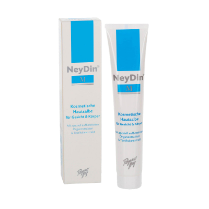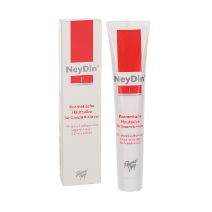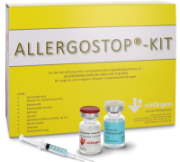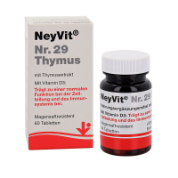
Areas of application / Immune system & allergy
Immune system & allergy
The immune system is our invisible shield that protects us from countless threats every day.
Whether it’s bacteria, viruses or other harmful invaders, the immune system works around the clock to protect our body and keep it healthy.
It consists of a complex network of cells, tissues and organs that work together to ward off disease.
This includes white blood cells, antibodies, lymph nodes, the spleen and the bone marrow.
Each of these components plays a crucial role in fighting infection and healing injuries.

How does the immune system work?
Our immune system recognizes and fights pathogens in various ways.
The innate immune system is the first line of defense and can react quickly to foreign substances, albeit relatively unspecifically.
The skin and mucous membranes form the first important barriers here.
In addition, messenger substances are released that chemically damage intruders directly and special defense cells are available that can destroy or absorb and break down a germ.
In addition, humans have an acquired immune system that is formed before birth and in the first years of life and is still capable of learning later.
At the heart of the acquired immune system are specialized white blood cells, the T and B lymphocytes, as well as the antibodies produced, which together react highly specifically to individual pathogens and foreign substances.
They also have the ability to form an immune memory in order to “remember” enemies and thus defend themselves more quickly and efficiently.
A targeted therapeutic approach at cellular level can help to strengthen and protect the immune system in its complex fight against invaders.
Diseases and symptoms
-
Allergies: An allergy is an excessive reaction of the immune system to normally harmless substances such as pollen, animal hair or certain foods.
The immune system mistakenly recognizes these substances as a threat and triggers symptoms such as sneezing, itching, skin rashes or breathing difficulties. -
Autoimmune diseases: Autoimmune diseases develop when the immune system reacts incorrectly against the body’s own tissue.
The immune system mistakenly recognizes the body’s own tissue as foreign, attacks it and causes damage.
These include diseases such as rheumatoid arthritis, lupus erythematosus, ulcerative colitis, Hashimoto’s thyroiditis, Addison’s disease and multiple sclerosis. -
Immunodeficiency: Stress, grief and prolonged psychological stress in particular can weaken the immune system and encourage the development of diseases.
-
Inflammatory diseases: These include chronic inflammatory bowel diseases (IBD) such as Crohn’s disease and ulcerative colitis, which are associated with an excessive immune response in the digestive tract.
Care and maintenance of health
-
Healthy diet: A balanced diet with sufficient vitamins, minerals and antioxidants promotes immune function.
-
Sufficient sleep: Sufficient sleep is essential for the regeneration of the immune system.
-
Stress management: Coping with stress through relaxation techniques such as meditation and yoga helps to strengthen the immune system.
This selection of preparations contains carefully extracted components of organs and tissues that play a central role in the immune system and are involved in the regulation of allergies.
The following content is only visible to specialists. Register now.


NeyDin® M
Intensive care for chapped skin.
Cell extracts from maternal placenta and testes relieve eczema, allergic and inflammatory skin conditions, soothing swelling and skin hardening.
PZN 6925822

NeyDin® F
Regeneration for problem skin.
Cell extracts from maternal placenta and ovary improve local blood circulation, wound healing and stimulate cell growth.
PZN 6925839

CONISAN N® eye drops
CONISAN N® eye drops are suitable for the prophylaxis and treatment of dry and sensitive eyes.
PZN 11669918



